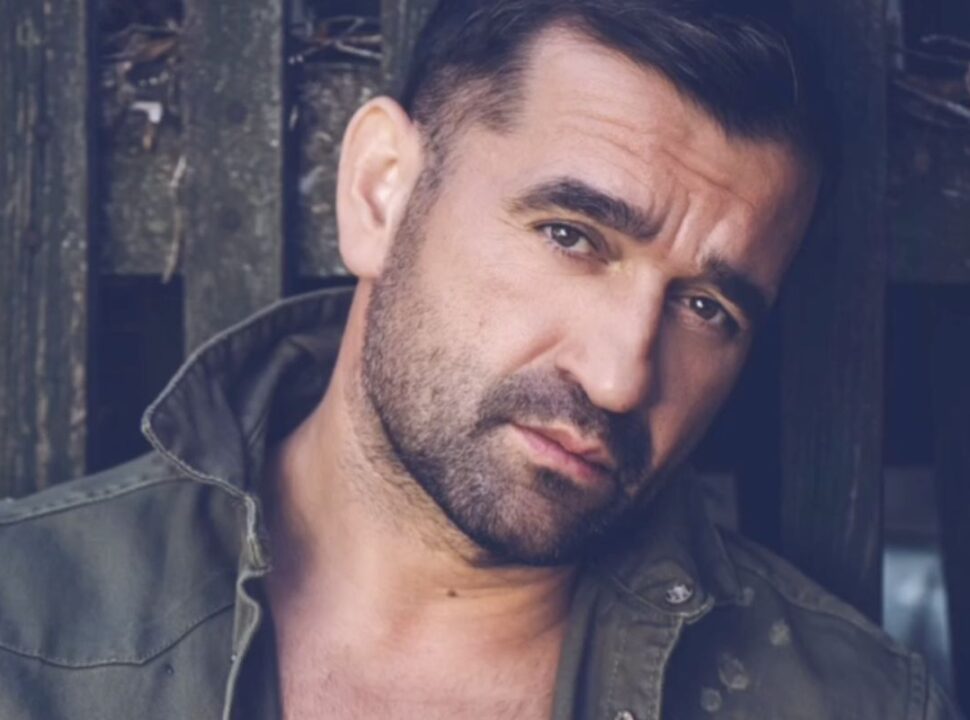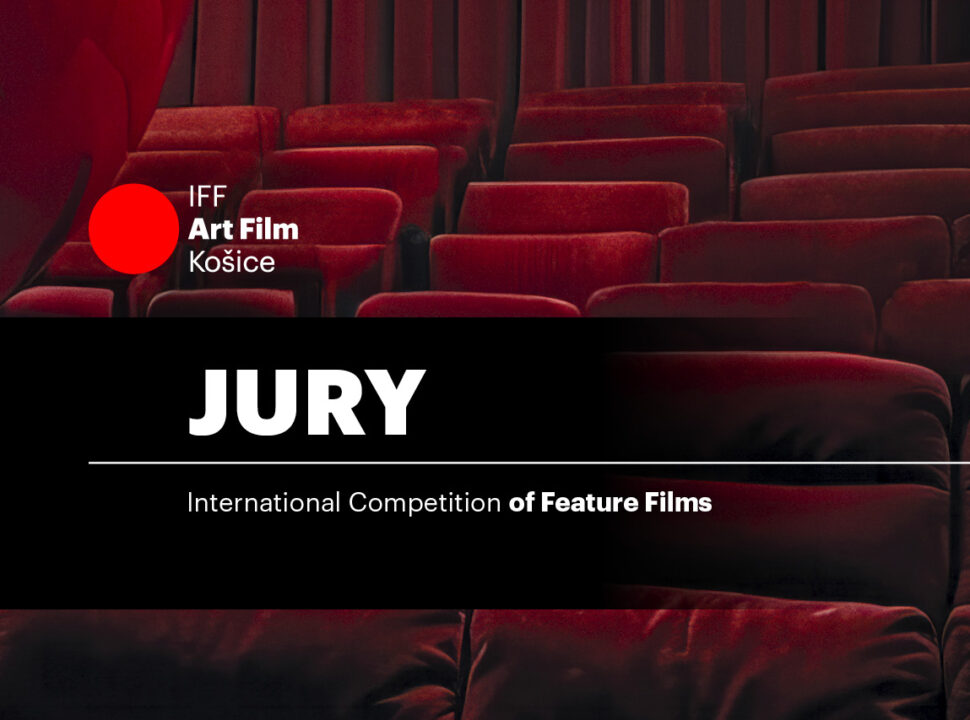The 30th anniversary edition of the Art Film IFF will present for the first time a new competition section – the International Competition of Films from Central and Eastern Europe, which is intended for filmmakers of feature films from the region without a limitation of type and genre. With this step, the organizers want to support new cinematographic trends of filmmakers from the former Eastern Bloc countries. “When selecting the films, I was particularly interested in stories mapping the past, also because nowadays we are witnessing the juggling with its forms and versions in the name of various political interests,” said the competition curator Viera Langerová.
The magical-realistic film 8 VIEWS OF LAKE BIWA directed by Mark Raat combines Estonian and Japanese cultural traditions. With reference to the Eastern artistic tradition of the “Eight Views,” the tragic film tells the story of a community of Old Believers left to live around Lake Peipus after their 17th century Russian ancestors. The locals were shaken by a mishap, which was survived only by young Hanake and one other man. Eight views – that is, capturing eight perspectives of one place in order to find its true essence, while preserving the symbolism of peace and tranquillity – somehow does not fit into this environment. The fishing community is fragmented and every member is looking for something. He searches but does not find. A mystical and poetic film meditation on love, desires and the universe marks Mark Raat’s return to feature films after a decade spent making documentaries. You will also see his experimental novelty in the section of International Competition of Films from Central and Eastern Europe.
The Slovak documentary filmmaker Palo Korec, who has produced successful films such as Exhibits or Stories from the Manor House (2013) or Waiting Room (2015), comes to Art Film with his new film Aquabelles from Prandorf, which captures the slow penetration of modern social attitudes into an ordinary Slovak village. Five women from the village of Devičany near Banská Štiavnica decided to change their lives, to confront the stereotypes that have so far determined how they should live. The merry women, as they call themselves on their Facebook page, where they already have a decent fan club, started their fight against “traditions” by cutting a hole in the ice with an axe and began to harden themselves in cold water. And they continued to do so despite the uncomprehending stares of the villagers.
The Romanian Revolution and the overthrow of the dictator Nicolae Ceaușescu in 1989 – events during which the country was one step away from civil war. In the Transylvanian town of Sibiu, revolutionary sentiment escalated into a civilian attack on a police station. The police were left helpless. The crowd, meanwhile, made its way to the weapons depot and a gunfight ensued. The intoxication by killing was everywhere. Tudor Giurgiu‘s new historical drama FREEDOM reconstructs the thrilling course of the bloody protests that pitted the Romanian army, police, civilians and secret service informers against each other. Depicting the conflict from different perspectives, the author uses his classic handheld camera and in his long, shaky shots viewers will find thrilling tension and an authentic insight into a dark part of Romanian history.
The Latvian historical drama MARIA’S SILENCE, directed by Dāvis Sīmanis, began its festival journey with its world premiere at the Berlinale. It is a biographical film based on the fate of actress Marie Leiko, a star of German silent cinema. After the rise of Nazism, she returned to her native Latvia, from where she travelled to Moscow to find her orphaned granddaughter. As a result of the monstrous regimes of the last century, Maria’s family, career and life are in danger. The return to the political past and the history of cinema is close to the Latvian director’s heart, and in his current film he pays homage to the German silent era using the stylization of his work.
Hungary’s first feature-length animated documentary PELIKAN BLUE takes viewers back to Hungary in the 1990s. When travel to Western Europe becomes possible but prohibitively expensive after the fall of the Iron Curtain, the three friends devise a simple but ingenious way to counterfeit tickets, offering affordable travel options to an entire generation yearning for freedom. However, freedom comes at a price and it is only a matter of time before someone finds out about the boys’ shady business. The director of this comedic animated film is the documentary filmmaker and animator László Csáki and his contribution to the section will tell the story of the birth of the entrepreneurial spirit in an environment where anything was possible.
The Slovak director Roman Ďuriš met the protagonist of his new documentary film AS LONG AS I LIVE by chance after a circus performance. Dalibor became a fakir after being released from prison. A young man comes to terms with past traumas in his own way and wants to help his dysfunctional family as much as he can. “When Dalibor began to open up to me and talk about his life, his story resonated within me, as if in a certain way I was living it too. I firmly believe that everyone can find some similarities to their own life in his story. Whether it is conflicts with parents, the desire for love or the search for one’s own identity,” noted director Roman Ďuriš. The filmmakers adapted their film language to allow viewers to get closer to Dalibor’s inner world. Through his art with fire, the young fakir battles the demons of his own past and strives for a better future for himself and his younger brother, whom he protects from the dangers he himself once knew.
Award-winning Ukrainian director Roman Bondarchuk‘s film THE EDITORIAL OFFICE gives his own testimony of how intelligence worked in the southern parts of Ukraine before the war, at a time when disinformation was spreading in the country and the population was preparing for war. The protagonist of the drama is Yura, who witnesses a crime, but soon discovers that no one around him cares about the truth of what happened. The Editorial Office is a film about real events, but also about ambiguities, myths and fabrications.
In the beautiful Scottish countryside, thirty-year-old Bartek, who has fled Poland to escape his past and his own conscience, works for a night’s accommodation. He is tormented by memories of his family and some remorse, so he tries to chase them away doing manual labour on the farm that belongs to Magnus. The more the two get closer, the faster Bartek’s past catches up with him. Klaudiusz Chrostowski’s feature-length debut explores the themes of reconciliation, return and coming to terms with one’s own mistakes through powerfully emotional dialogues. The Scottish countryside and weather also play a big role in ULTIMA THULE, reflecting the main character’s experiences and emotional storms. The film won the low-budget category at last year’s Gdynia Film Festival.
The film WE WILL NOT FADE AWAY, awarded at the festival in Zlín, was made by a young Ukrainian director Alisa Kovalenko. The film portrays the lives of five teenagers from the conflict-affected Donbas region. These young people are given the opportunity to take part in an expedition in the Himalayas, giving them a brief escape from everyday life. The documentary captures their dreams, hopes and challenges, highlighting the beauty and fragility of life even under difficult circumstances. The film premiered at the Berlinale in the Generation 14plus section and gained attention for its emotional depth.
The jury of the International Competition of Films from Central and Eastern Europe at the Art Film festival (International Jury) this year consists of three female experts from the field of film theory and theatre studies. Birgit Beumersspecialises in Russian culture, especially film and theatre. She received the degree of D.Phil. at St Antony’s College, Oxford. She is an acclaimed author and editor of several important publications, including such books as Nikita Mikhalkov (2005) and A History of Russian Cinema (2009). Another member of the jury is Anna Ladinig, a curator and film theorist who studied Slavic and Romance languages and literature at the University of Innsbruck. In recent years she has worked on a number of major projects, most notably at the International Film Festival in Innsbruck (IFFI). She has been the director of the festival since 2020. The last member of the jury of the international competition is Sylvia Huszár, theatre scholar, translator and producer. From 1983 to 1988 she studied philosophy/aesthetics and theatre studies at the Theatre Faculty of the Academy of Performing Arts and the Faculty of Arts of of Comenius University in Bratislava. She has lived and worked in Budapest since 1988. She worked as a clerk for film, theatre and visual arts at the Slovak Institute in Budapest. In 2007, she collaborated with Béla Tarr on the film Man from London.
CANON SLOVAKIA is a Partner of the financial award in the amount of €1,500, which will be given to the winning film from the newly established International Competition of Films from Central and Eastern Europe together with the Blue Angel Award. “We are honoured to be a part of so many films through our Canon technology that allows filmmakers to tell different stories. We keep our fingers crossed for all the representatives of the submitted films to the International Competition of Films from Central and Eastern Europe and we wish the jury the best of luck in selecting the best in the given category,” says Tomáš Feč, Corporate PR Specialist.
The 30th anniversary edition of the Art Film IFF will take place thanks to the support of:
Organiser: ART FILM FEST s.r.o.;
Co-organizers: City of Košice, K13 – Košice cultural centers, ART FILM FEST, n.o., LGM, s.r.o., FORLIVE;
The festival was financially supported by: Audiovisual Fund
The festival is co-financed by: Košice self-governing region from the Terra Incognita program;
Major advertising partner: Slovenská elektrizačná prenosová sústava, a.s.;
Main advertising partners: Národná lotériová spoločnosť TIPOS, Východoslovenská energetika, CODES Brand House;
Automotive partner: PORSCHE; Official hotel: Hotel Yasmin;
Main media partners: TV JOJ, Pravda, Eurotelevízia;
Advertising partners: construction company Adefex, Jadrová a vyraďovacia spoločnosť, a.s., Best Press, U. S. Steel Košice, Betpres, Transpetrol, ANTIK Telecom, Kino Úsmev;
Technological partners: NOV, ZEBRA, DELTA OnLine, ARICOMA, TelekomCLOUD;
Official contractors: DKC Veritas, East Slovak Museum in Košice, BARZZUZ, DOMOS SLOVAKIA; Official wine:Kubbo Select and Ostrožovič;
Media partners: JOJ PLAY, JOJ 24, Film Europe, Rádio KOŠICE, aktuality.sk, Forbes, Korzár, Slovenka, SITA, TASR, See & Go, BigMedia, Košice City Guide, Film.sk, Visit Košice, zenskyweb.sk, mojakultura.sk;
Partners: Východoslovenská vodárenská spoločnosť, Nadácia CEF, Slovnaft, AUPARK Košice, Carmeuse Slovakia, JOJ Cinema, cestovná kancelária Hydrotour, Taper, YumEarth, Letisko Košice, ECO Technologies, CPK Slovakia, Casa Trade – Casablanca cafe, DC MEDICAL, KPK Reklama;
Financial awards partners: CANON, Filmarina;
Catering partners: Ohnisko – Fire Dining & Brew Bar, Pub u kóhúta, El Nacional, Maiko Sushi, Café de Paris, Tabačka Kulturfabrik;




